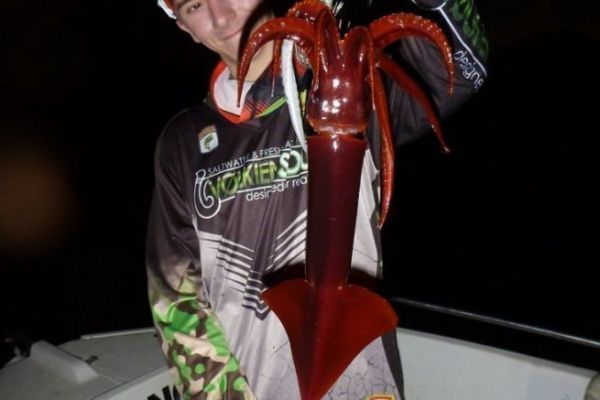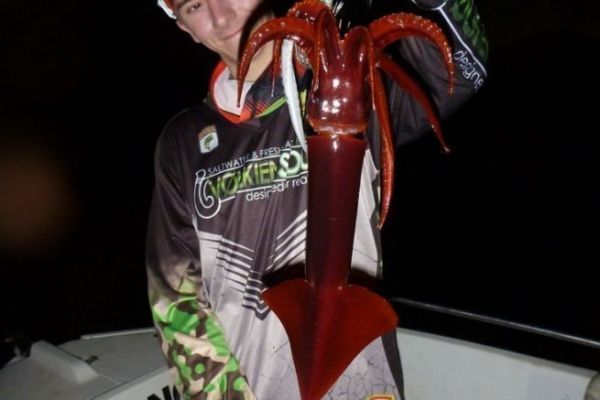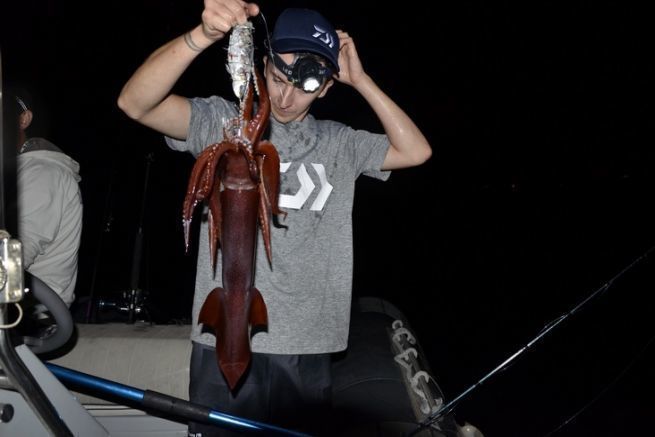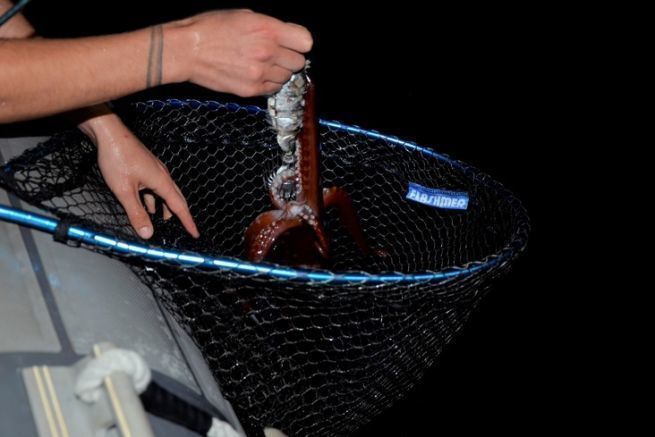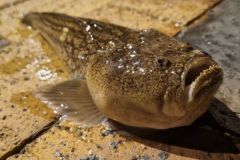A big squid that loves the deep sea
From its scientific name Illex coindetii the red squid is found in both the Mediterranean and the Atlantic. As its name suggests, the red squid is distinguished from the white squid by its dominant red color. It has prominent eyes and strong tentacles with two rows of suckers.
Red squid can exceed one metre in length and weigh over 10 kilos, but it's obviously not individuals of this size that we're looking to catch. Squid in excess of a kilo and around 50 cm long or smaller are the easiest to find and bring up from the deep.

They are generally found at depths of 50 meters and more, and can live at depths of over 1,000 meters. Red squid come up from the depths at night to feed on potential prey.
A cannibalistic species
Opportunistic, the red squid feeds mainly on fish. Sardines, mackerel and anchovies are the coveted prey of these imposing squids.
Red squid tend to become cannibals when swimming in large schools. It's not uncommon for larger individuals to attack juveniles and make them their meal. It is therefore possible to use the smaller specimens as bait in the hope of catching the larger individuals.
Red squid fishing
There are two ways of hoping to catch red squid. Look for them during the summer months, at depths ranging from 50 metres to 150 metres at night. Or fish for them at greater depths throughout the year, over 200 meters.
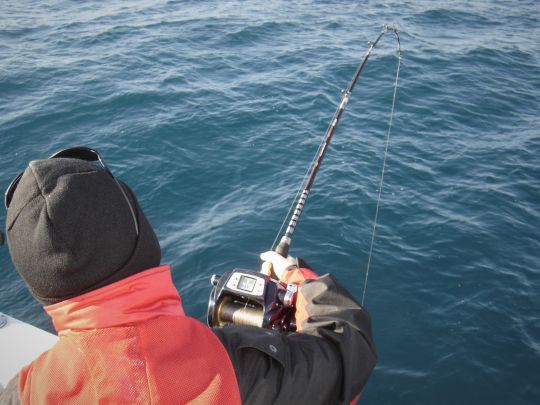
Equipment should be adapted according to the depth you are fishing. Preferably a casting rod and reel for greater comfort when fishing at shallower depths.
For larger depths, fishing with an electric reel remains unavoidable. A long-bottom jig fitted with a sardine and all you have to do is find them.

 /
/ 